Two guitarists, Jesse Cohen and Justin Hubbard, met in a Rhode Island record store in 2015. Their casual conversations revealed mutual fascinations: American folk, international string music, odd tunings, and sonic experimentalists. Soon, they were playing together, incorporating a steady feedback drone from Hubbard's hollow-bodied Gibson guitar as an ever-present undercurrent in their music.
One night, they caught percussionist Matt Crane backing avant-garde jazz singer Linda Sharrock at an unexpected spot—a House of Pizza that doubled as a music venue. Crane's rhythmic inventiveness and collection of global percussion instruments fit perfectly with Cohen and Hubbard's mix of folk traditions and experimental leanings. This connection sparked their self-titled ESP-Disk debut, which they recorded in one room with minimal effects.

Their music, especially "Complex Premonition" and their version of Pharoah Sanders's "Japan," pulls from various roots—pre-war blues, international string styles, and Providence's experimental Fort Thunder scene. But Paper Jays never simply recreate these influences. Instead, their songs move naturally between tightly wound sections and open-ended exploration.
Lawrence Peryer: Tell me how you came together and into your sound.
Justin Hubbard: When we met we just instantly started realizing we had a lot of musical commonalities.
Jesse Cohen: We both like American folk music, world-string music, and open tunings. I had an open tuning that I'd been playing in for some time, and Justin also put his guitar in that tuning. And we just started playing along together.
Justin: It took a little bit for us to figure out a direction we wanted to go because we were having fun playing stuff. We got into putting the drone in and just trying to mix things up, at least for us, to keep it interesting.
Lawrence: I think of many diverse strands that come together in your work, even some stuff from the ESP-Disk catalog, like Holy Modal Rounders. How do you think about lineage?
Justin: We have a lot of conversations about what we don't want to do. Jesse had a good batch of songs ready to go that we just started digging in on. But lineage is important to both of us. We both love John Fahey, Richard Thompson, and all that stuff. But we didn't want to be rehashing some traditional kind of thing.
Jesse: I was excited to learn that Justin was into Henry Flynt. We both like mixing folk idioms with avant-garde ideals, such as repetition, drone, and feedback.
When we play together, we're operating from a place where we both have a lot of the same formative stuff, but I don't think we ever want to say, "Hey, let's do something that sounds like this," or "Let's do something that sounds like that." One of us will just come in with a part, and the other will come up with a complement. An astute listener could hear some of that lineage in what we play, but there's never any pointed effort to sound like one particular thing.
Lawrence: Providence has changed a lot through the years, as many cities have—it's charming. I don't think people outside of maybe some genre scenes know much about the city. I'm reminded of the melding of folk and avant-garde, similar to someone like Eugene Chadbourne, who I identify with Providence, and the collaborations he did at AS220.
Justin: I've been here for about nine years. I lived in Boston for twenty years, but Providence was always a mystery. I played down here a few times, but I always felt it was tough to jump in. I was excited to move here to this area and learn about Providence.
Jesse: There was a place in the nineties in Providence called Fort Thunder. It was a giant old mill space that a bunch of RISD students turned into this amazing living studio. It was a wonder to look at. It was what you imagine when you think of 'nineties mill space' with detritus stapled to the walls. So much music came through there—oddball, cool, and weird stuff. After seeing a lot of music and playing there, doing something straight and predictable would be a little boring, from my point of view.
Lawrence: When you first got to know each other, which artists were like, "Oh, okay, this guy knows about so-and-so"—those signifier artists?
Jesse: There is a lot of pre-war blues stuff.
Justin: That kind of seemed to be the starting point.
Jesse: Not that it has anything to do with our music, but I remember bonding over Bohannon a little. Sonny Sharrock.
Also related to Sonny Sharrock is the guy who plays percussion with us, Matt Crane. We met him when he was putting together shows in Warren, Rhode Island, where Justin lives. I live one town over in Bristol, but he was backing Linda Sharrock at a local House of Pizza that became a venue. We loved Matt's drumming. We asked him, "Do you want to jam with us sometime?" And that's how the percussion dimension of Paper Jays came to be.
Lawrence: You have the open tunings, you have the feedback, these sonic textural elements. Some of the copy about the record refers to feedback as a member of the band. Could you talk a little bit about that?
Justin: I just thought there was something comforting about it that opened things up a little bit for us. We started doing that before Matt was in the group, and it just was like a whole other layer. It was nice to have this constant going; we're both into these repetitive things.
When we started playing with Matt, we took a break from that for a little bit, which was also nice because it's good to mix things up. Matt moved away, so I think we've gone back to adding it back in. I missed the feedback, but it was also nice to take a break from it.
Jesse: I sometimes think of it as in raga music. There's the tambura in the background that's always going and always droning. This is our version of that, just this foundation that even if we stop for a second, there's always some movement and something happening. It is a sense of security, too, that there's this thing always there.
I had this chintzy digital tambura I would use when playing alone. The idea of getting feedback from a guitar and letting it sit against an amp was more appealing than using a little tin box.
Lawrence: A lot of the atmosphere and ambiance on the record—I'm going to deduce that it's coming from the room. You captured that sense of space. What's your setup like when you're in the studio?
Justin: It was really important for us to play it in the room together, all live, facing each other, no headphones. That was the ideal. So that's how we did it. Our friend Andy [Davis] engineered and was always on board for anything, and it's all bleed. Everything's bleeding into every other mic. Matt was just a few feet away from us, and all his percussion was bleeding into my mic and into Jesse's, which helped. That's the glue.
Jesse: It's worth noting that the session was the first time Matt ever played with us. We knew what Matt was capable of but we were a little like, "How's this gonna go?" But it's not like we were worried about Matt being able to pull it off.
Justin: It was also so exciting. It was like, "Wow, this is cool." I've never done this before on a recording. And he brought all kinds of cool, interesting percussion things. It was exciting and fun.
Jesse: He has an endless bag of cool stuff.
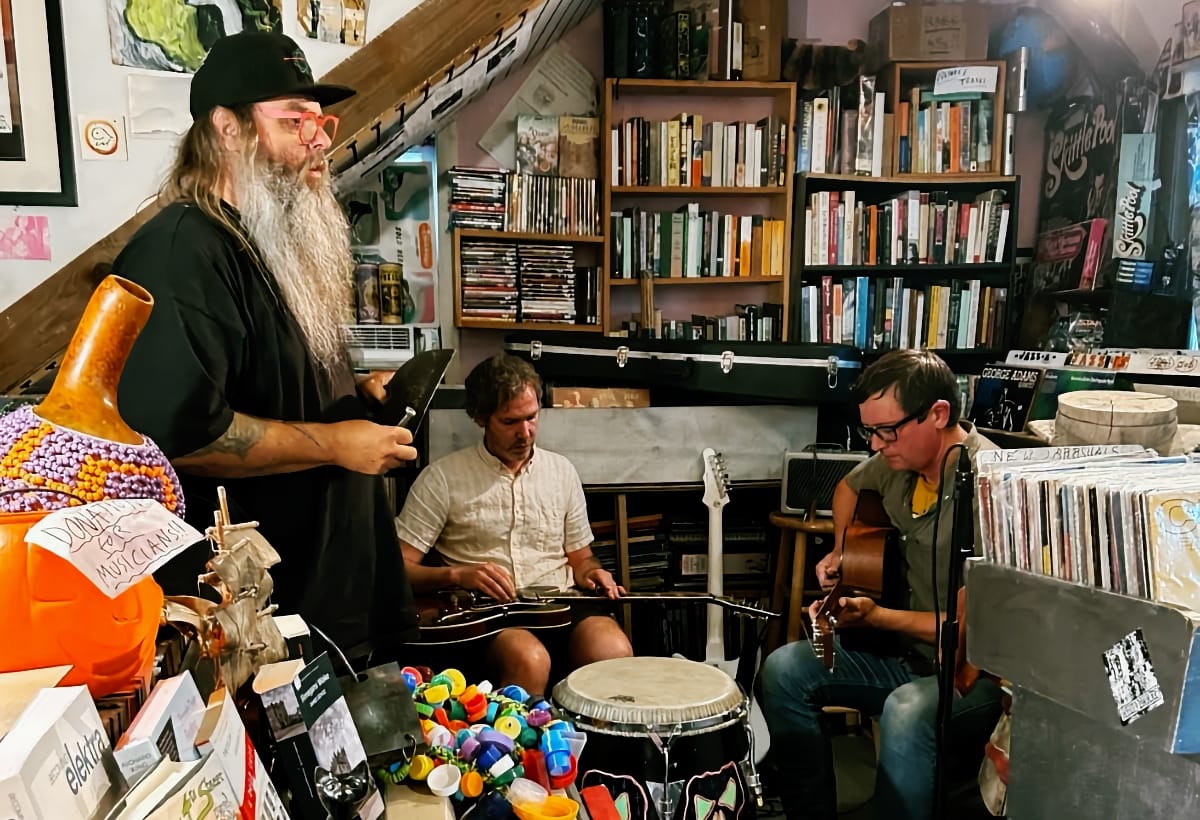
Lawrence: Jesse, you bring a piece to Justin. Are you saying, "Here's some changes"? Or are you conducting it all and saying, "Okay, now here's the spot where it's going to be free and open"? I am curious about structure versus free form.
Jesse: Some parts of those songs are preordained, and we will play them a certain way. Then, when we agree on and sculpt that out together, during practice, there are other parts where, within the same song, we're just going to let a section fly and go with it as long as it feels right and do what we want in that section.
In one song, "Complex Premonition," the beginning is planned and very repetitive, but the end is wide open, and it can go as long as we want it to go or as short as we want it to go.
Lawrence: Talk to me about being on ESP-Disk.
Justin: It's exciting.
Jesse: Yeah, I agree. I remember getting into that Godz record in college, and then all the free jazz stuff, the Fugs, and the Holy Modal Rounders.
Lawrence: What about Pharoah Sanders? What were your entry points into Pharoah?
Justin: I got Karma on CD when Impulse! started reissuing all that stuff in the mid-nineties. I was living in an apartment and remember blasting that CD so loud. My landlord lived upstairs and came down and asked, "What are you doing? Turn this down." "Creator Has a Master Plan" was just blasting. That was my first Pharoah experience. After that, there's a lot there to dig into. It's exciting to find someone like that.
Jesse: Tauhid, the first one on Impulse! Sonny Sharrock plays on that.
I saw Pharoah play at Le Poisson Rouge in New York. I'm bad with years, but that was probably eight or nine years ago. I got to see him play, and it was an amazing experience. His song "Japan" that we covered just seemed to be easily translatable to what we do. I love him.
Lawrence: When I read about your record, someone said that your version of "Japan" sounds like Cajuns on acid. I think you've got the title of your next album.
Justin: "Cajuns on Acid"— I'll take it.
The self-titled album Paper Jays, out on ESP-Disk, is available digitally and on vinyl through Bandcamp. Follow Paper Jays on Instagram.
Check out more like this:
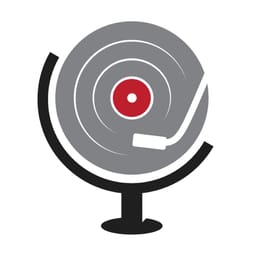 The TonearmMichael Donaldson
The TonearmMichael Donaldson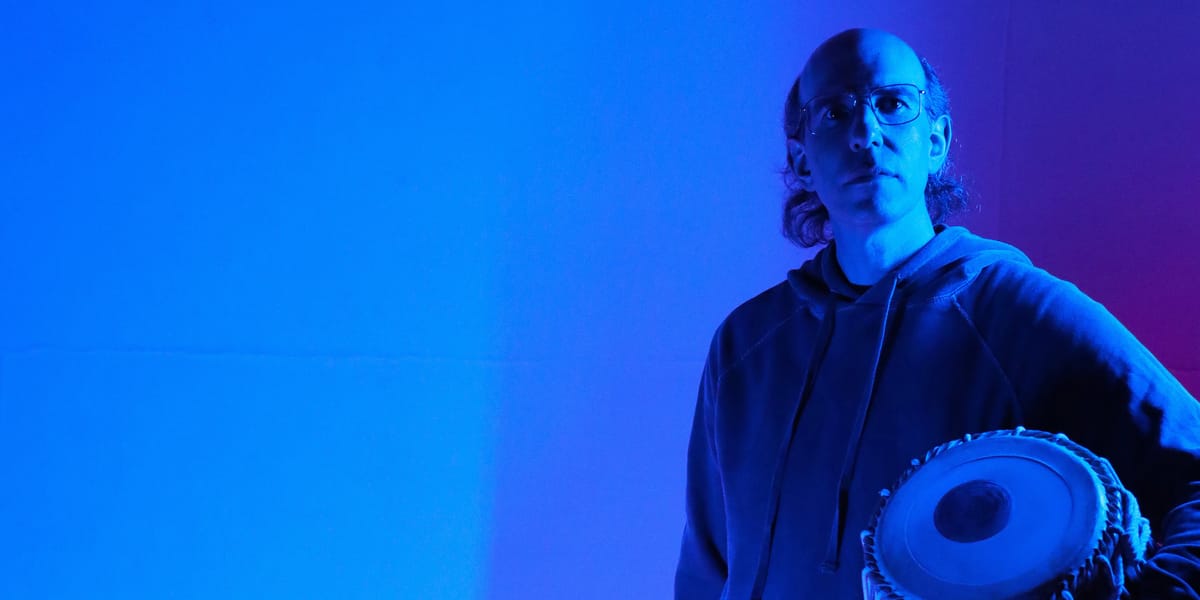
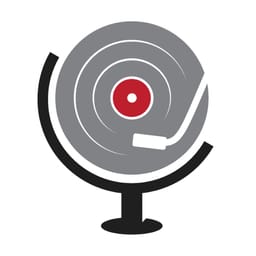 The TonearmLawrence Peryer
The TonearmLawrence Peryer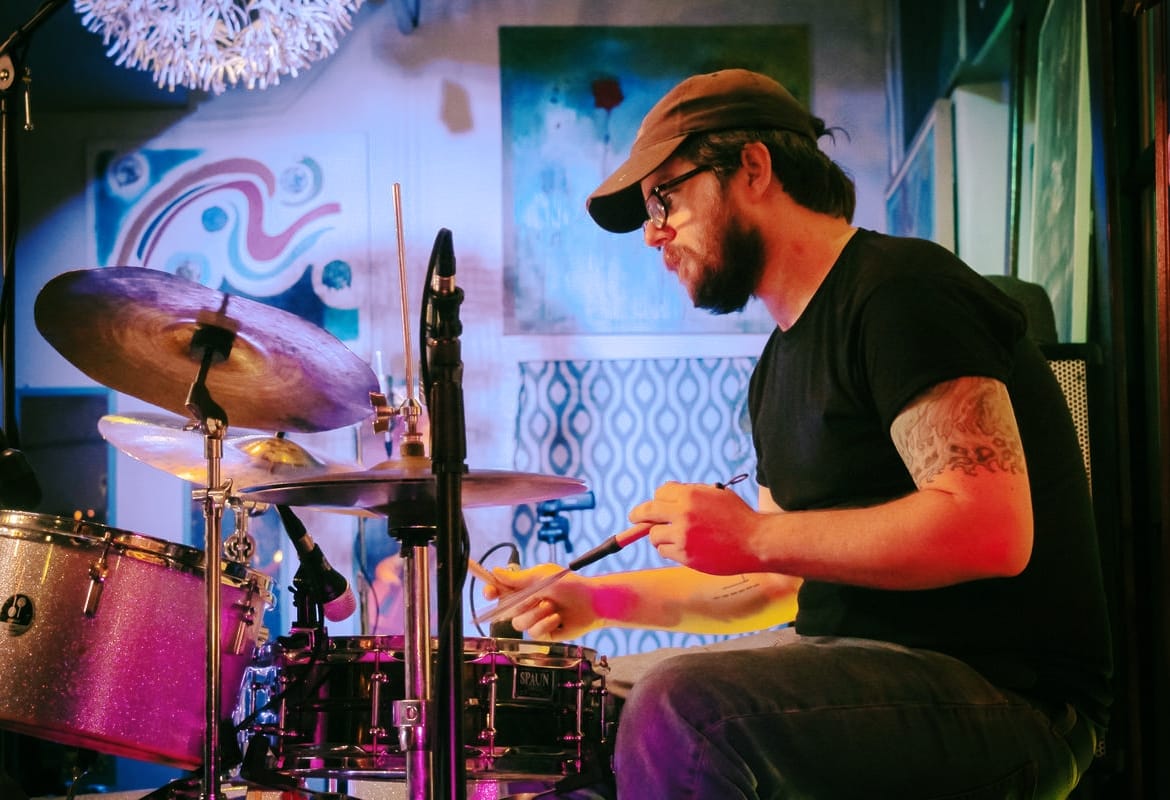


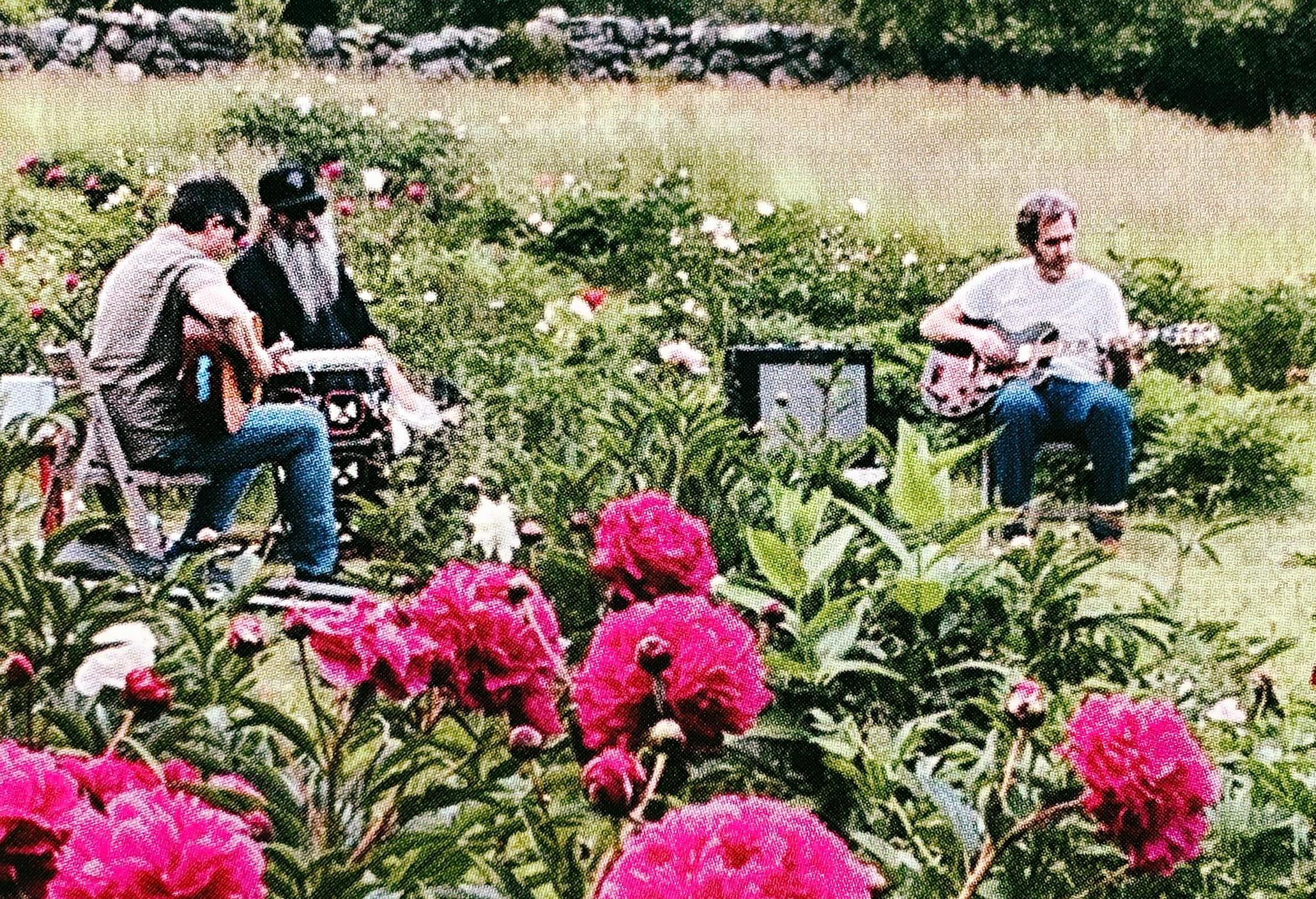




Comments